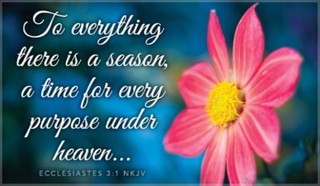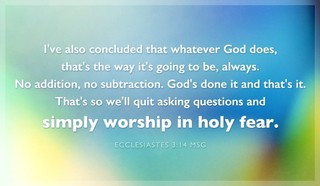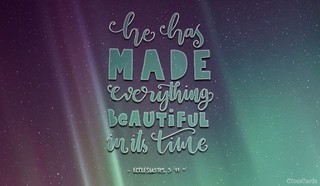
- Recent Translations
- All Translations
Prediker 3:22 Meaning and Commentary
Wherefore I perceive that [there is] nothing better than that
a man should rejoice in his own works
The Targum is, "in his good works"; not as justifying him before God, but as vindicating him before men, from unjust censures and charges: rather the sense is, that this is the wise man's conclusion, and this his sentiment, upon the whole; that there is nothing better for a man, than cheerfully to enjoy the fruit of his labours; to eat and drink in moderation, freely, joyfully, and thankfully; and make use of his riches, power, and authority, for his own good, the good of his family for the present, and the good of his fellow creatures; see ( Ecclesiastes 2:21 ) ( 3:13 ) ; for that [is] his portion;
what is allotted to him, and thus enjoyed, is a very good one, and for which he has reason to be thankful; for who shall bring him to see what shall be after him?
to see who shall succeed him, and what use they will make of what he leaves them; he shall never return after death to see anything of this kind, nor shall any acquaint him with it; he shall not be able to know when he is dead what shall befall his sons, whether they will prosper or rio, so Jarchi; wherefore it is best for him to enjoy his substance himself in a comfortable way, and be beneficial to others, and not oppressive to them. The Midrash illustrates it thus,
``who shall bring David to see what Solomon did? and who shall bring Solomon to see what Rehoboam did?''

